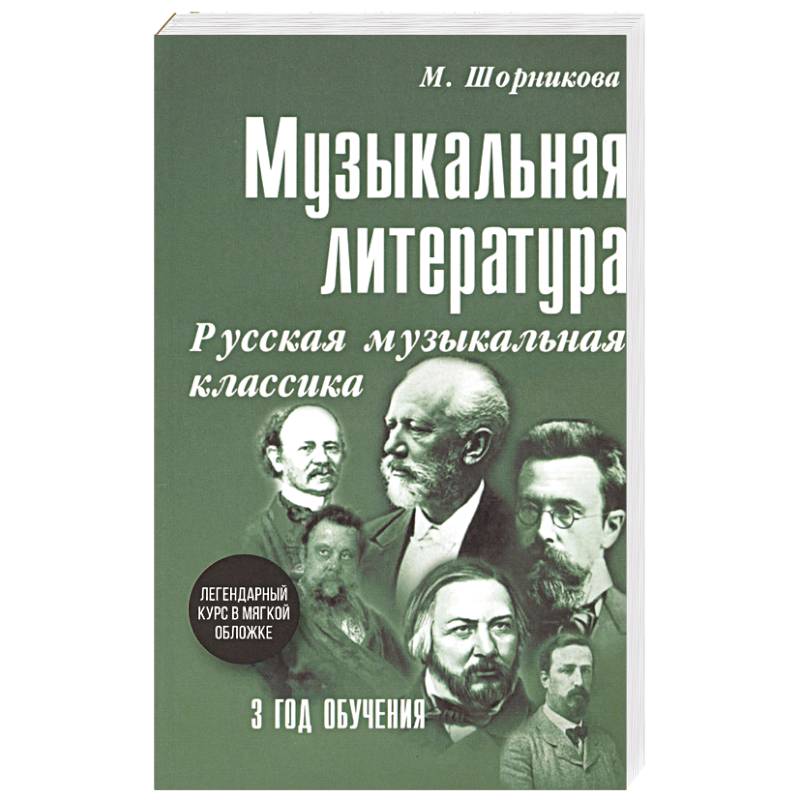Music literature. 3rd year of study. Russian classical music
Please sign in so that we can notify you about a reply
The emergence of this textbook is due to the fact that the traditional program for musical literature for the Children"s School was published in 1956 and, without changing efficiently, then withstood several reprints (1962, 1970, 1979, 1982) Naturally, many attitudes and thematic plans for a standard program are outdated and do not meet the requirements of new approaches and methods of musical education of children.
In recent years, other models of programs, curricula that adapt the content of the course to the new historical and socio-cultural conditions began to appear. This manual is based on many years of experience in teaching the subject "musical literature" in the Children"s School, set out in copyright programs and methodological recommendations of E. Lisyanskaya, Yu. Ageeva, A. Khotuntsov, M. Kuklinskaya, etc.
A textbook for the third year of study covers a huge period of development of Russian music: from the ancient Russian era until the end of the 19th century. In addition to traditional topics, it included classes on the development of Russian musical culture to Glinka, the features of the artistic life of Russia in the 2nd half of the 19th century. Monographic classes also include the analysis of works that are not included in the traditional program of the course of musical literature.
When creating this manual, we took into account the fact that the main tasks of music schools include not only the development of musical abilities of children, understanding the foundations of classical and modern musical creativity, but also the preparation of active listeners and lovers of music. Therefore, our book also included additional introductory materials. They are united in the heading "say that ..." and addressed to the broad masses of the children"s audience. Some of these materials are gleaned from the book Funny Anthrak. Curious stories from the life of musicians" (compiler I. Artemchuk. - Kyiv. 1989)
In recent years, other models of programs, curricula that adapt the content of the course to the new historical and socio-cultural conditions began to appear. This manual is based on many years of experience in teaching the subject "musical literature" in the Children"s School, set out in copyright programs and methodological recommendations of E. Lisyanskaya, Yu. Ageeva, A. Khotuntsov, M. Kuklinskaya, etc.
A textbook for the third year of study covers a huge period of development of Russian music: from the ancient Russian era until the end of the 19th century. In addition to traditional topics, it included classes on the development of Russian musical culture to Glinka, the features of the artistic life of Russia in the 2nd half of the 19th century. Monographic classes also include the analysis of works that are not included in the traditional program of the course of musical literature.
When creating this manual, we took into account the fact that the main tasks of music schools include not only the development of musical abilities of children, understanding the foundations of classical and modern musical creativity, but also the preparation of active listeners and lovers of music. Therefore, our book also included additional introductory materials. They are united in the heading "say that ..." and addressed to the broad masses of the children"s audience. Some of these materials are gleaned from the book Funny Anthrak. Curious stories from the life of musicians" (compiler I. Artemchuk. - Kyiv. 1989)
Author:
Author:Schornikova Maria Isaakovna
Cover:
Cover:Soft
Category:
- Category:Arts & Photography
Publication language:
Publication Language:Russian
Paper:
Paper:Offset
Age restrictions:
Age restrictions:0+
ISBN:
ISBN:978-5-222-39444-1
No reviews found
